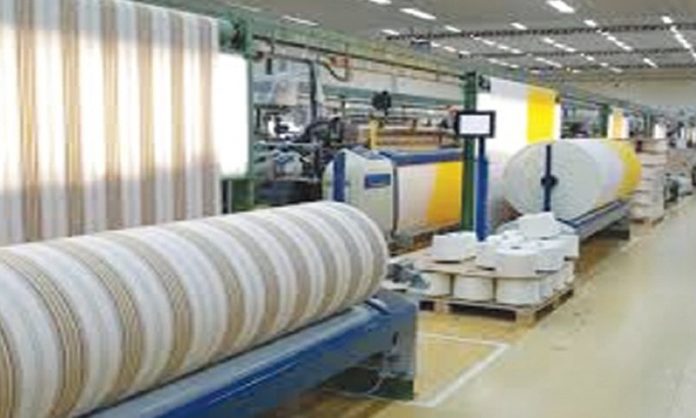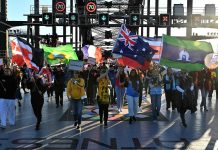ISLAMABAD: Pakistan’s textile and clothing exports declined by over 15 per cent year-on-year to $1.007 billion in August, compared to $1.19bn in the corresponding month of 2019, data released by the Pakistan Bureau of Statistics showed on Monday.
The export proceeds dipped in the second month of current fiscal year after posting growth in the first month. As a result of Covid-19, the demand for country’s exports has collapsed during the last five months.
It was only in February when the textile and clothing exports jumped nearly 17pc on a yearly basis. This growth was reported after a long time as the past few years had been marred by single-digit increases.
However, in July-August, textile exports edged lower by 0.98pc to $2.28bn, from $2.302bn in same period of previous year.
Details showed ready-made garment exports fell by 13.74pc in value while plunging in quantity by 51.83pc during August. Those of knitwear dropped 10.65pc in value and 27.2pc in quantity, bed wear 12.29pc and 25.52pc, respectively.
Towel exports fell by 10.12pc in value and 15.85pc in quantity, whereas those of cotton cloth dipped 17.91pc and 33.42pc.
The government lifted the ban on exports of seven products classified as personal protective equipment (PPE) in a bid to allow manufacturers to honour international orders.
Among primary commodities, cotton yarn exports plunged by 51.36pc, yarn other than cotton by 100pc, made-up articles — excluding towels —5.82pc and raw cotton 94.4pc. On the other hand, tents, canvas and tarpaulin increased by a massive 34.07pc during the month under review.
The import of textile machinery dropped by 30.27pc during the second month of FY1 — a sign that no expansion or modernisation projects were taken up by the industry in the given period.
The country’s textile and clothing exports tumbled over 6pc year-on-year to $12.526bn in FY21, compared to $13.327bn in the corresponding period of FY20.
Oil imports
Petroleum imports declined 24.27pc in August to $770.586 million, compared to $1.017bn over the last year.
It is estimated that petroleum consumption since March 22 has fallen significantly since the full lockdown was enforced and private transport came to a standstill. Of these, petroleum product imports were down 24.78pc in value in August despite increasing by 48.36pc in quantity.
Similarly, import of crude oil rose 9.49pc in value and 65.04pc in quantity during August while those of Liquefied Natural Gas fell by 51.01pc in value.
On the other hand, liquefied petroleum gas imports jumped 13.19pc in value in August, largely to plug a shortage in local production.
As a result, exports of petroleum products were down 50.39pc year-on-year during the month under review.
Machinery imports dipped 5.89pc to $646.949m, from $687.409m while those of power generating machinery were up by 15.23pc and office machinery 31.50pc during August.
In the telecommunication group, imports surged by 61.0pc led by mobile handsets higher by 85.84pc. This was the result of a crackdown on smuggling and doing away with free imports in baggage schemes.
Import of other apparatus fell by 0.67pc. The overall transport group also witnessed contraction of 38.35pc.
An increase of 38.45pc was seen in imports of textile group — raw cotton, synthetic and artificial silk yarn.
The overall food group import jumped by 10.95pc during August from a year ago. The government import wheat and sugar to bridge the local shortages.
Total imports during July-August were lower by 10.65pc to $3.674bn, as against $3.720bn in the corresponding period of previous year.








